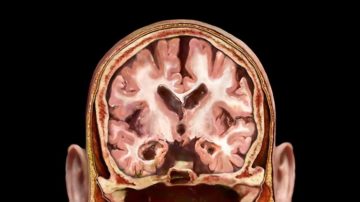Lilly Tozer in Nature:
 A study that followed thousands of people over 25 years has identified proteins linked to the development of dementia if their levels are unbalanced during middle age. The findings, published in Science Translational Medicine on 19 July1, could contribute to the development of new diagnostic tests, or even treatments, for dementia-causing diseases. Most of the proteins have functions unrelated to the brain.
A study that followed thousands of people over 25 years has identified proteins linked to the development of dementia if their levels are unbalanced during middle age. The findings, published in Science Translational Medicine on 19 July1, could contribute to the development of new diagnostic tests, or even treatments, for dementia-causing diseases. Most of the proteins have functions unrelated to the brain.
“We’re seeing so much involvement of the peripheral biology decades before the typical onset of dementia,” says study author Keenan Walker, a neuroscientist at the US National Institute on Aging in Bethesda, Maryland. Equipped with blood samples from more than 10,000 participants, Walker and his colleagues questioned whether they could find predictors of dementia years before its onset by looking at a person’s proteome — the collection of all the proteins expressed throughout the body. They searched for any signs of dysregulation — when proteins are at levels much higher or lower than normal.
The samples were collected as part of an ongoing study that began in 1987. Participants returned for examination six times over three decades, and during this time, around 1 in 5 of them developed dementia. The researchers found 32 proteins that, if dysregulated in people aged 45 to 60, were strongly associated with an elevated chance of developing dementia in later life. It is unclear how exactly these proteins might be involved in the disease, but the link is “highly unlikely to be due to just chance alone”, says Walker.
More here.
